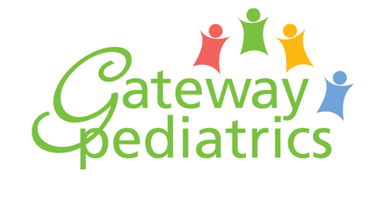April Showers Bring…Allergies and Asthma!
March 17, 2022
 It is safe to say most of us are beyond ready for Spring. Unfortunately, the downside of the sunshine, warmth, and blooming flowers is that they also bring seasonal allergies with them. Seasonal allergies are lifelong, but symptoms can get better or worse over time. Many people first get seasonal allergies when they are children, as young as 2 years of age.
It is safe to say most of us are beyond ready for Spring. Unfortunately, the downside of the sunshine, warmth, and blooming flowers is that they also bring seasonal allergies with them. Seasonal allergies are lifelong, but symptoms can get better or worse over time. Many people first get seasonal allergies when they are children, as young as 2 years of age.
Seasonal Allergies Symptoms in Children
Most of us are familiar with the common symptoms of seasonal allergies: nasal congestion, runny nose, sneezing, itchy/red eyes, sore throat, and poor sleep. Some harder to recognize symptoms in children include:
• Nose sniffing
• Coughing
• Throat clearing
• Mouth breathing
• Trouble concentration/doing school work
• Trouble with sports
Link between Seasonal Allergies and Asthma
Children with seasonal allergies may also have Asthma. Asthma is a condition that can make it hard to breathe by causing narrowing and inflammation in airways. Several things can “trigger” asthma symptoms, including seasonal allergies. Although rare, an asthma episode can lead to death and therefore your child’s allergy and asthma symptoms should be taken very seriously.
Asthma Symptoms in Children
If your child has Asthma, you will likely see the following:
• Wheezing or noisy breathing
• Dry coughing, often at night or early in the morning, or with exercise
• A tight feeling in the chest
• Trouble breathing
Seasonal Allergies and Asthma Treatment
If your child is experiencing any of the aforementioned symptoms, it is important to bring them to their pediatrician for further evaluation and proper diagnosis.
Children with seasonal allergies might get one or more of the following treatments: nose rinses, steroid nose sprays, antihistamines, or allergy pills. Some over-the-counter medications are not safe for young children so be sure to read the instructions carefully and check with your pediatrician.
Asthma symptoms can range from mild to severe and therefore proper classification and treatment is necessary. Asthma is treated with different types of medications, including inhalers, liquids, or pills. Medication is determined based on your child’s age and symptoms. Asthma medications works in 1 of 2 ways: quick-relief medicines and long-term controlled medicines. Almost all children with asthma use either an inhaler with a “spacer” or a “nebulizer”. Your child’s pediatrician or nurse can demonstrate how to properly use these.
It is very important that you give your child all the medicines your pediatrician prescribes. The goal of allergy and asthma treatment is to allow your child to participate in all their normal activities.
Can Seasonal Allergies be Prevented?
Yes! If your child gets symptoms at the same time every year, talk to their pediatrician. Some people can prevent symptoms by starting their medication 1-2 weeks before that time of year. You can also help your child avoid allergens by:
• Keep your child inside when symptomatic
• Keep car and house windows closed and use air conditioning instead
• Have your child take a bath or shower before bed to rinse pollen off hair and skin
• Use a vacuum with a HEPA filter to keep indoor air as clean as possible.
We here at Gateway Pediatrics wish you a happy and healthy Spring!
(Photo by Jordan Whitt on Unsplash)



Add a Comment